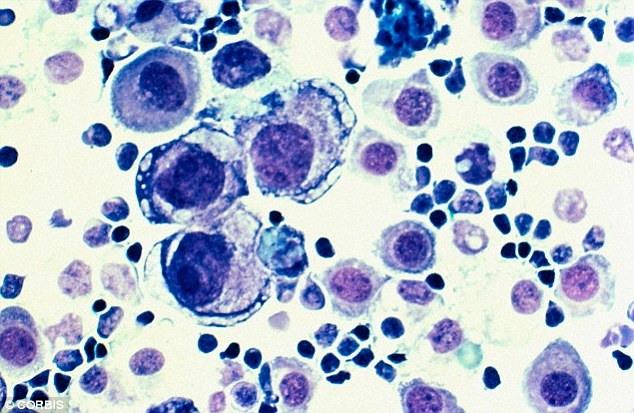-
Tips for becoming a good boxer - November 6, 2020
-
7 expert tips for making your hens night a memorable one - November 6, 2020
-
5 reasons to host your Christmas party on a cruise boat - November 6, 2020
-
What to do when you’re charged with a crime - November 6, 2020
-
Should you get one or multiple dogs? Here’s all you need to know - November 3, 2020
-
A Guide: How to Build Your Very Own Magic Mirror - February 14, 2019
-
Our Top Inspirational Baseball Stars - November 24, 2018
-
Five Tech Tools That Will Help You Turn Your Blog into a Business - November 24, 2018
-
How to Indulge on Vacation without Expanding Your Waist - November 9, 2018
-
5 Strategies for Businesses to Appeal to Today’s Increasingly Mobile-Crazed Customers - November 9, 2018
Female Hormone Progesterone Can Help Tackle Breast Cancer
Almost 1.7 million women globally are diagnosed with breast cancer each year, and about half could stand to benefit from progesterone therapy if the findings are confirmed in clinical trials. Researchers say that, in fact, half of these women could benefit from this recent discovery.
Advertisement
The latest findings were discovered using a newly developed technique that saves breast cancer cells for research.
A cheap and safe drug could help half of women with breast cancer to live longer, scientists suggest. Women whose tumours have high levels of oestrogen receptor, for example, benefit from drugs that block the effects of the oestrogen hormone.
According to Dr. Jason Carroll, of the Cancer Research United Kingdom Cambridge Institute:
“We’ve used cutting-edge technology to tease out the crucial role that progesterone receptors play in breast cancer – a mystery that has baffled scientists for many years.”
“By taking this sponge, which contains a number of factors that promote viability of the cells, the tumour cells seem to like this and their viability and growth is maintained over a period of time in the laboratory”.
Cancers with progesterone receptors were known to be less deadly, but the reason why was unclear and they have not been explored as a treatment.
About 75% of women have breast cancers with the oestrogen receptor and of those, 75% also have progesterone receptors. “The new technique we have developed sees tumor cells from participating patients “rescued” for research purposes”, Professor Wayne Tilley, from the University of Adelaide’s Dame Roma Mitchell Centre, said. They found that adding progesterone to double positive cancers, along with tamoxifen, slowed their growth more than the drug alone. “Crucially, it provides a strong case for a clinical trial to investigate the potential benefit of adding progesterone to drugs that target the oestrogen receptor, which could improve treatment for the majority of hormone-driven breast cancers”.
Coupled with advanced scientific technologies pioneered by Cambridge University this has provided a unique insight into the hormone regulation of breast cancers, which is expected to lead to new treatments for the disease. Details of the study are reported in Nature.
“We then compared these maps in breast cancer cells grown with and without progesterone”.
Advertisement
Dr Emma Smith, from Cancer Research United Kingdom, said the early results were an “exciting” prospect.





























